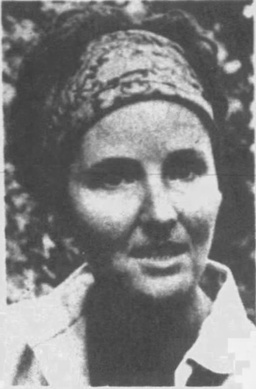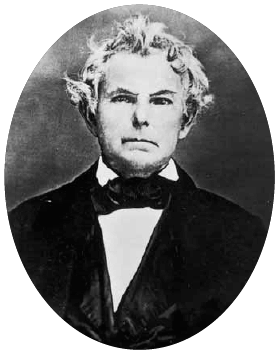Related Research Articles

Frances Wright, widely known as Fanny Wright, was a Scottish-born lecturer, writer, freethinker, feminist, utopian socialist, abolitionist, social reformer, and Epicurean philosopher, who became a US citizen in 1825. The same year, she founded the Nashoba Commune in Tennessee as a utopian community to demonstrate how to prepare slaves for eventual emancipation, but the project lasted only five years.

The Midwestern United States, also referred to as the Midwest or the American Midwest, is one of four census regions of the United States Census Bureau. It occupies the northern central part of the United States. It was officially named the North Central Region by the U.S. Census Bureau until 1984. It is between the Northeastern United States and the Western United States, with Canada to the north and the Southern United States to the south.

Catharine Esther Beecher was an American educator known for her forthright opinions on female education as well as her vehement support of the many benefits of the incorporation of kindergarten into children's education. She published the advice manual The American Woman's Home with her sister Harriet Beecher Stowe in 1869. Some sources spell her first name as "Catherine".

Cynthia Ann Parker, Naduah, Narua, or Preloch, was a woman who was captured by a Comanche band during the Fort Parker massacre in 1836, where several of her relatives were killed. She was taken with several of her family members, including her younger brother John Richard Parker. Parker was later adopted into the tribe and had three children with a chief. Twenty-four years later she was relocated and taken captive by Texas Rangers, at approximately age 33, and unwillingly forced to separate from her sons and conform to European-American society. Her Comanche name means "was found" or "someone found" in English.

Frances Ellen Watkins Harper was an American abolitionist, suffragist, poet, temperance activist, teacher, public speaker, and writer. Beginning in 1845, she was one of the first African American women to be published in the United States.

Annie Oakley was an American sharpshooter who starred in Buffalo Bill's Wild West.

Nanyehi, known in English as Nancy Ward, was a Beloved Woman and political leader of the Cherokee. She advocated for peaceful coexistence with European Americans and, late in life, spoke out for Cherokee retention of tribal hunting lands. She is credited with the introduction of dairy products to the Cherokee economy.

Frances Slocum was an adopted member of the Miami people. Slocum was born into a Quaker family that migrated from Warwick, Rhode Island, in 1777 to the Wyoming Valley in Luzerne County, Pennsylvania. On November 2, 1778, when Slocum was five years old, she was captured by three Delaware warriors at the Slocum family farm in Wilkes-Barre, Pennsylvania. Slocum was raised among the Delaware in what is now Ohio and Indiana. With her marriage to Shepoconah, who later became a Miami chief, Slocum joined the Miami and took the name Maconaquah. She settled with her Miami family at Deaf Man's village along the Mississinewa River near Peru, Indiana.

Annette Kolodny was an American feminist literary critic and activist, held the position of College of Humanities Professor Emerita of American Literature and Culture at the University of Arizona in Tucson. Her major scholarly writings examined the experiences of women on the American frontiers and the projection of female imagery onto the American landscape. Her other writings examined some aspects of feminism after the 1960s; the revision of dominant themes in American studies; and the problems faced by women and minorities in the American academy.

The General Federation of Women's Clubs (GFWC), founded in 1890 during the Progressive Movement, is a federation of approximately 2,300 women's clubs in the United States which promote civic improvements through volunteer service. Community Service Projects (CSP) are organized by local clubs for the benefit of their communities or GFWC's Affiliate Organization (AO) partnerships. GFWC maintains nearly 60,000 members throughout the United States and internationally. GFWC is one of the world's largest and oldest nonpartisan, nondenominational, women's volunteer service organizations. The GFWC headquarters is located in Washington, D.C.
The Chestnut Ridge people (CRP) are a mixed-race community concentrated in an area northeast of Philippi, Barbour County in north-central West Virginia, with smaller related communities in the adjacent counties of Harrison and Taylor. They are often referred to as "Mayles", or "Guineas".
Anne Bailey was a British-born American story teller and frontier scout who served in the fights of the American Revolutionary War and the Northwest Indian War. Her single-person ride in search of an urgently needed powder supply for the endangered Clendenin's Settlement was used as the template for Charles Robb's 1861 poem "Anne Bailey's Ride". She is known as the Heroine of the Kanawha Valley.
Anna Lee Walters is a Pawnee/Otoe–Missouria author.

Delilah Leontium Beasley, was a historian and newspaper columnist for the Oakland Tribune in Oakland, California. Beasley was the first African American woman to be published regularly in a major metropolitan newspaper. Beasley was also first to present written proof of the existence of California's black pioneers in Slavery in California (1918) and The Negro Trail-Blazers of California (1919). Her career in journalism spanned more than 50 years. She detailed the racism in California and the heroic achievements by Blacks to overcome them during the late 19th century and early 20th century.

Annie Turner Wittenmyer was an American charitable organization leader, known for social reform, relief work, and her writing. She served as the first National President of the Woman's Christian Temperance Union (WCTU), seventh National President of the Woman's Relief Corps (WRC), and also served as president of the Non-Partisan National Woman's Christian Temperance Union. In 2007, Wittenmyer was inducted into the Iowa Women's Hall of Fame.

Isaac Galland was a merchant, postmaster, land speculator, and doctor. He is best known for selling large tracts of land around Commerce, Illinois, to The Church of Jesus Christ of Latter-day Saints in 1839.
The following works deal with the cultural, political, economic, military, biographical and geologic history of the Midwestern United States.

Augusta Pierce Tabor was the wife of a merchant and miner, Horace Tabor, the first white woman to live in the Idaho Springs mining camp, and a Denver philanthropist. She was inducted into the Colorado Women's Hall of Fame in 1991 for her contributions to social service and philanthropy.

Lucy Thurman was a national temperance lecturer from Jackson, Michigan.
This is an English language bibliography of scholarly books and articles on the American frontier. It is a selection from tens of thousands of titles. See also: Bibliography of the Western United States
References
- ↑ "Education Briefly - 11/03/03". lubbockonline.com. Retrieved 2017-11-12.
- ↑ Iowa Department of Human Rights. "1990 Iowa Women's Hall of Fame Honoree: Glenda Gates Riley." . (accessed 21 October 2017).
- ↑ Williams, Brian and Sebastian Kitchen. "Education Briefly - 11/03/03." . (30 October 2017).
- ↑ Iowa Department of Human Rights. "1990 Iowa Women's Hall of Fame Honoree: Glenda Gates Riley." . (accessed 21 October 2017).
- ↑ Glenda Riley. Women and Indians on the Frontier, 1825-1915. New Mexico: University of New Mexico Press, 1984. p 200-203.
- ↑ Riley, Glenda. Taking Land, Breaking Land: Women Colonizing the American West and Kenya, 1840-1940. New Mexico: University of New Mexico Press, 2003. p 109.